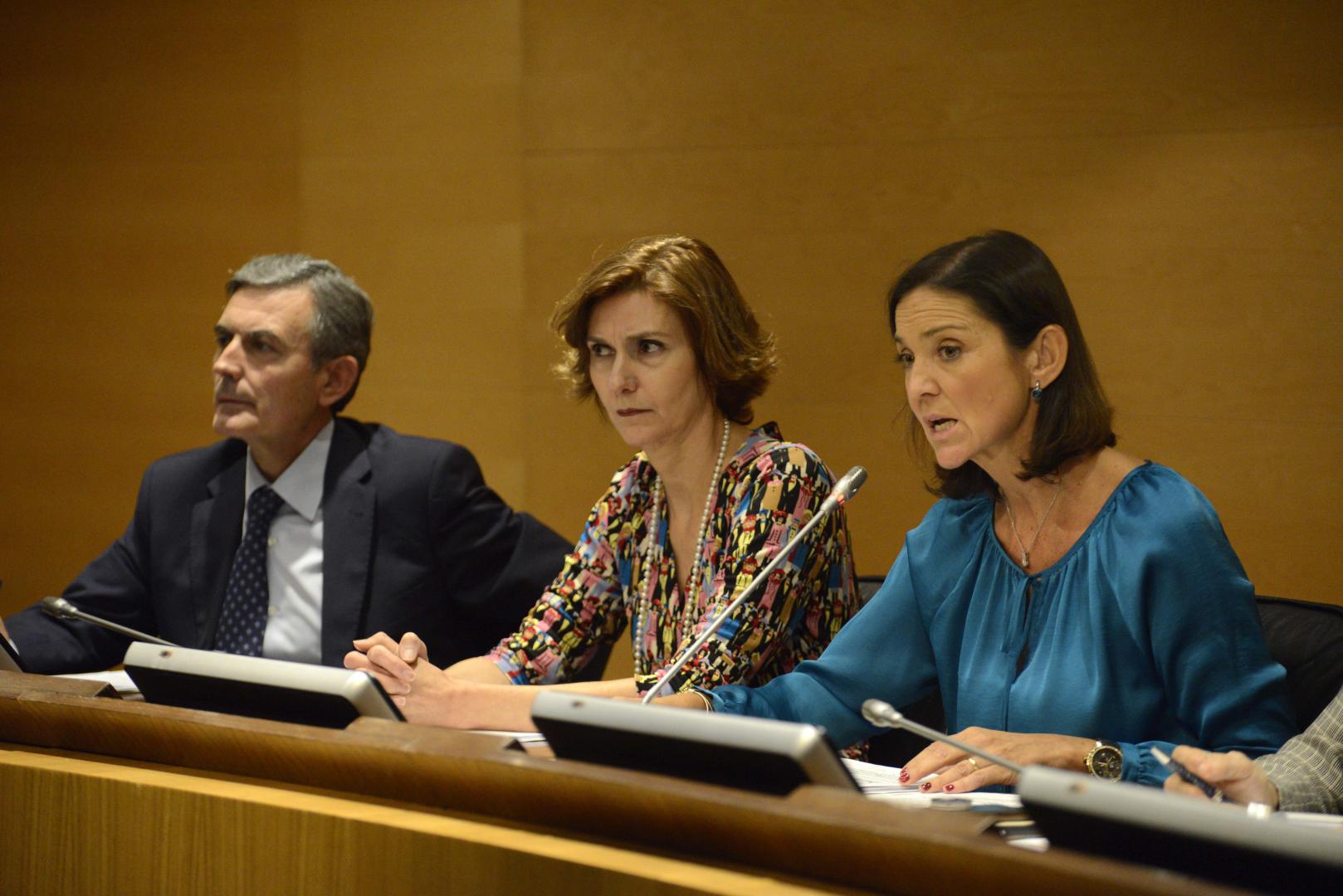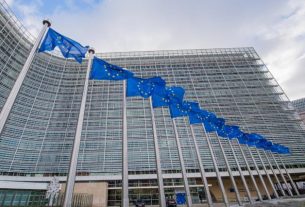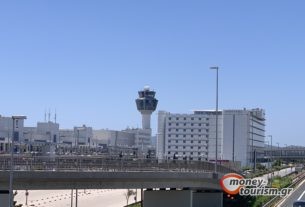Reyes Maroto opts for establishing homogeneous criteria for treating areas of risk and coordinated measures to control the departure and arrival of travellers, and applying them at regional level to avoid indiscriminate measures, so that “Europe is once again a safe travel destination”.
The minister calls for a European Action Plan to rescue the sector, including a European Travel Guarantee Fund.
Nine countries sign the declaration proposed Spain; Austria, Croatia, Slovenia, France, Greece, Italy, Luxembourg, Malta and Portugal.
Joint Statement of the EU Tourism Ministers
We, the Ministers responsible for Tourism of Austria, Croatia, France, Greece, Italy, Luxembourg,
Malta, Portugal, Slovenia, and Spain, acknowledge that the COVID-19 pandemic has caused an
unprecedented health emergency across the European Union (EU) and globally. The protection of
public health has become an overriding priority for both the EU and its Member States. Throughout
the COVID-19 crisis, Member States have adopted different response measures, depending both
on their domestic epidemiological situation and other related factors.
While it remains the responsibility of each Member State to enact the measures it sees fit in order
to control the pandemic, a coherent European response is critical. However, it is essential to avoid
a fragmented approach as seen earlier in the year as well as to preserve freedom of movement
between all Member States as well as the integrity of the Single Market and the Schengen area.
On a European level, efforts to coordinate these measures have commenced.

We Ministers for Tourism welcome the recent efforts of the Commission, and Member States to
find ways in which to support ongoing and coordinated EU action, and the readiness of the
Presidency to lead this process, which enables us to ensure the protection of public health while
allowing freedom of movement necessary for the maintenance of tourism. Such a process requires
not only the general political will of EU/European Economic Area countries, but also the
collaborative efforts of all EU Member States in order to preserve tourism flows within the European
Union and third countries. Progress, however, so far is limited. As a result and for this purpose, we
consider it is essential:
1. To urgently conclude the negotiations on a coordinated approach to the restriction of free
movement in response to the COVID-19 pandemic, including a common cartography of risk areas
at the sub-state level. Furthermore a common framework for internal measures to be triggered in
response and timely communicated to the countries concerned to offer clarity and predictability to
all stakeholders and citizens.
In that particular, it is our view that:
– The avoidance of indiscriminate measures, in particular refusals of entry, to all travellers entering
an EU Member State from another Member State is of the utmost importance to limit the negative
consequences of the pandemic on the tourism and economic activity in general. It is therefore
imperative that the right of free movements of people between all Member States and within the
integrity of the Schengen area is preserved to the extent possible: the general principle must be not
to restrict free movement but to take the necessary measures to enable European citizens to enjoy
this right with maximum security and health safety.
– Measures by any member states aiming to control the pandemic and imposing restrictions on
travellers from other member states should be taken at regional level whenever possible, and
specifically for the island regions of the EU, in any case in compliance with Member States
constitutional legal order. Such measures must be non-discriminatory and proportionate.
2. To make the best and effective use of the financial tools and programs created by the Multiannual
Financial Framework 2021-2027 and Next Generation EU: the next-long term EU budget should
necessarily support the tourism industry’s recovery, given the serious situation and the major loss
of employment in the sector. To that purpose, we should use the funds created by Next Generation
EU to help companies in the tourism industry learn to stay competitive in a new, dynamic and
changing environment.
3. To boost the collaboration among the Commission, Member States and all other public and
private stakeholders so as to maintain Europe as the world’s leading tourism destination and to
build a more resilient, competitive and sustainable sector.
Elisabeth Köstinger, Minister for Agriculture, Regions and Tourism, Austria.
Nikolina Brnjac, Minister of Tourism and Sport, Croatia.
Jean-Baptiste Lemoyne, Minister of State for Tourism, French Nationals Abroad and Francophonie,
attached to the Minister for Europe and Foreign Affairs, France.
Harry Theoharis, Minister of Tourism, Greece.
Dario Franceschini, Minister for Cultural Heritage and Activities and for Tourism, Italy.
Lex Delles, Minister for Tourism, Luxembourg.
Julia Farrugia Portelli, Minister for Tourism and Consumer Protection, Malta.
Rita Marques, Secretary of State for Tourism, Portugal.
Zdravko Počivalšek Minister for Economic Development and Technology, Slovenia.
María Reyes Maroto Illera, Minister for Industry, Trade and Tourism Spain




